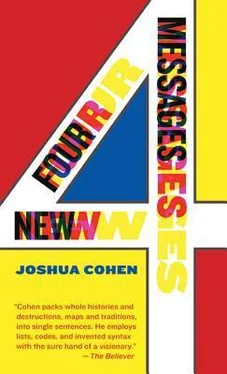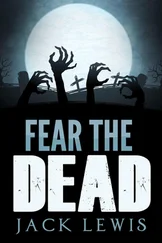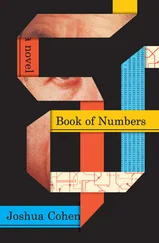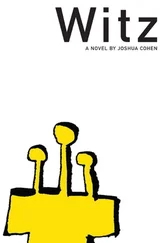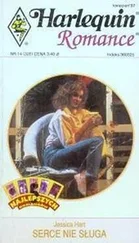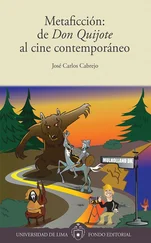Joshua Cohen
Four New Messages
This isn’t that classic conceitwhere you tell a story about someone and it’s really just a story about yourself.
My story is pretty simple:
About two years after being graduated from college with a degree in unemployment — my thesis was on Metaphor — I’d moved from New York to Berlin to work as a writer, though perhaps that’s not right because nobody in Berlin works. I’m not going to get into why that is here. This isn’t history, isn’t an episode on the History Channel.
Take a pen, write this on a paper scrap, then when you’re near a computer, search:
www.visitberlin.de
Alternately, you could just keep clicking your finger on that address until this very page wears out — until you’ve wiped the ink away and accessed nothing.
However, my being a writer of fiction was itself just a fiction and because I couldn’t finish a novel and because nobody was paying me to live the blank boring novel that was my life, I was giving up.
After a year in Berlin, with my German language skills nonexistent, I was going back home. Not home but back to New York, I was going to business school. An M.B.A. It was time to grow up because life is short and even brevity costs. My uncle told me that, and it was his being diagnosed with a boutique sarcoma that — forget it.
Yesterday by close of business was the first time my portfolio ever reached seven figures, so if every author needs an occasion, let this be mine. Sitting in an office when I should be out celebrating my first million — instead remembering these events of five years ago to my keyboard, my screen.
But as I’ve said this is not about me — no one wants to hear how I’m currently leveraged or about my investments in the privatization of hospitals in China.
I met Mono — I’ll always think of him as Mono — only once, a week before I left Neukölln forever. Left the leafy lindens and sluggish Spree, the breakfasts of sausages and cheeses and breads that stretched like communist boulevards into late afternoon, the stretch denim legs of the artist girls pedaling home from their studios on paintspattered single speeds, the syrupy strong coffees the Kurdish diaspora made by midnight at my corner café and its resident narcoleptic who’d roll tomorrow’s cigarettes for me, ten smokes for two euros.
I was at a Biergarten, outside on its patio overlooking the water. The patio was abundant with greens: softly flowing ferns, flowers in pails, miniature trees packed into buckets to cut down on the breeze from the brackish canal. It was summer, still the evenings sometimes blew cool. Not this one. This evening was stifling. A few punks, scuzzy but happy, sat mohawked, barechested, feeding decomposing mice to their domesticated ermine. I was about to follow suit, had my shirt halfway up my beergut when he sat down — just when the sun was coming down.
Prose descriptions are safer than photographs (pics) and movies (vids). No one would ever identify the hero of a novel, if he’d come to life, solely by his author’s description. Let’s face it: Raskolnikov—“his face was pale and distorted, and a bitter, wrathful, and malignant smile was on his lips”—is not being stopped on the street.
Across from me Mono sat reading that novel, in English of course. And English led to English — he asked what beer was I drinking, an Erdinger Dunkel, and ordered the same.
To make conversation I said, Too bad we’re being served by the Russian. The Turk — turning my eye to the eye of her hairy navel — is way hotter.
This is not to my credit. To his he just smiled.
It was a tight smile, lips chewing teeth, as if he wasn’t sure how fresh his breath was.
I don’t know why Mono made such an impression on my premillionaire self — maybe because when you’re young and life’s a mess, the world is too: young and messy. It could also have been the beer, hopped on malt, its own head turning my head to foam.
I was in my mid 20s, actually in that latter portion of my 20s, spiraling, like how a jetliner crashes, toward 30.
But Mono was young.
He had his decade in front of him.
We covered 30: scary, scary.
Also we discovered we were both from Jersey — me from south, he from central, but still.
Why here?
It was important to deliver this offhand. All expats worry about coming off spoiled or ludicrous, insane.
Why I came here was to write a book, I offered, which isn’t working out.
He brought his mouth to his beer, not the other way around. The beard was still growing in.
He swallowed, said, Achtung, and as the sun disappeared told me this story.
Back in Jersey — this was only two months before the time of his telling but anything Jersey felt like years ago, amenitized among diners and turnpikes — Mono was a deliverer.
Like a priest, delivering from sin?
Or a recent arrival from Fujian with the fried rice, the scooter?
No, what Mono brought were drugs.
Drugs paid well but only for those actually supplying. Mono merely supplied the supply. This was not the ideas economy —whatever was supposed to save our country once we’d stopped physically making anything of value.
This was effort, was pick up, drop off, keep all names out of it and deal exclusively in cash. ( FYI, Benjamin Franklin is one of only two people featured on bills never to have been US President.)
Mono worked for a man — and he was a man with multiple children and women and not a lost lanky kid like Mono — who called himself Methyl O’Nine (as in cocaine, benzoylmethylecgonine, also zero and nine were the last two digits of his retired pager).
He was a short, slim but muscled, comparatively black man with a ritually dyed henna fleck of a goatee discreet beneath voluminous dreads like plumbing gone awry.
Mono spent weekends moving his product.
Methyl was a hushed seclusive type — not just careful but temperamentally dervish in his sandals and gangsta hoodies — and never wanted his deliverers to know where he lived or with whom he supplied and so he’d meet Mono as he’d meet all the others who did Mono’s job, on discrepant dim corners in Trenton.
Whenever he called Mono went and Mono went wherever Mono was called, which meant a lot of driving the Ford from near campus to fields and wharves and the parkinglots of midpriced restaurants.
Ford: bad brakes, transmission with the shakes, used to be his mother’s.
Campus: a fancy private university approximately an hour south of New York.
Methyl’s customers were mostly students — the idle rich, studiously clubby douches and athletic fratters, the occasional slumming neo-Marxist — but there were also the professors both adjunct and tenured. Some needed the drugs to write the papers, others needed the drugs to grade the papers, all needed the drugs — which they’d snort from atop the papers with rolled paper bills.
The students lived in student housing, the faculty lived in faculty housing (most student and faculty housing was identical), but Mono lived just outside Princeton — sorry, my mistake — in a collapsing bleachers of an apartment complex tenanted exclusively by the lowest paid support staff: the sad diabetics who mopped up the home game vomiting and this one security guard who protected the academics on weekdays but on weekends was regularly arrested in spousal disputes.
Mono hated being thought of as a dealer, as a danger. No respect for his opinion, no regard for his mind. And so he’d intimate deadlines, make allusions to debt, often just outright say it.
Enrolled but in another department.
Grothdyck? I snoozed through his seminar last spring.
Читать дальше
